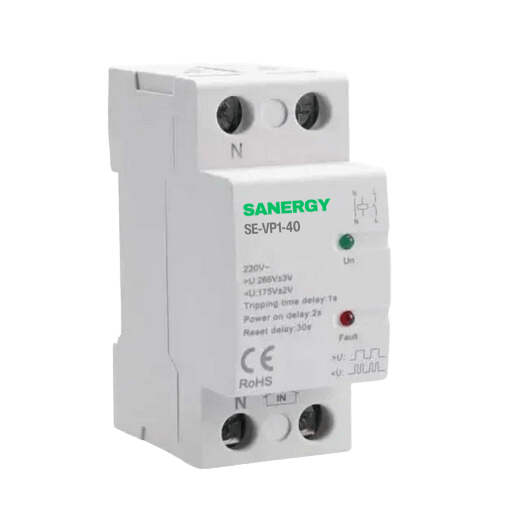Voltage protectors are critical devices designed to safeguard electrical systems and equipment from power surges, voltage spikes, and fluctuations. These disturbances can cause significant damage to sensitive devices, leading to downtime, costly repairs, and system failures. In this blog post, we’ll delve into how voltage protectors work and explore their connection to Surge Protection Devices (SPDs), which are often used to prevent voltage-related issues.
What Are Voltage Protectors?
Voltage protectors, also known as voltage surge protectors or voltage regulators, are devices that automatically stabilize voltage within an electrical system. They prevent equipment from being exposed to harmful voltage spikes or dips that could compromise performance or cause damage. By ensuring a steady flow of electricity, voltage protectors help prolong the lifespan of sensitive electronic components and machinery.
The Connection Between Voltage Protectors and SPDs
Surge Protection Devices (SPDs) are designed to divert excess voltage, especially from transient surges caused by lightning strikes, switching operations, or electrical faults. While both voltage protectors and SPDs serve to protect electrical systems from harmful voltage disturbances, their functions differ slightly:
- Voltage Protectors: Primarily designed to maintain consistent voltage levels by regulating fluctuations. They ensure that voltage remains within a safe operating range.
- SPDs: Focused on absorbing or redirecting voltage surges to prevent them from reaching sensitive equipment.
Although they serve slightly different purposes, these two devices are often used together in electrical systems to provide comprehensive protection against both voltage spikes and steady-state fluctuations.
Why You Need Both Voltage Protectors and SPDs
In complex electrical systems, a combination of voltage protectors and SPDs offers ultimate protection. Voltage protectors maintain a steady voltage supply, while SPDs act as a safeguard against sudden surges. Together, they create a reliable defense against electrical disturbances, ensuring the longevity and functionality of equipment.
How Voltage Protectors Work in Conjunction with SPDs
Voltage protectors typically monitor and adjust voltage levels continuously, ensuring that systems operate within safe parameters. When voltage surges or drops beyond predefined limits, voltage protectors adjust the system’s supply to prevent equipment damage. SPDs, on the other hand, come into play when an exceptionally high surge (e.g., lightning or power grid fluctuations) occurs. They quickly absorb the excess voltage and direct it to the ground, protecting your equipment from damage.
Conclusion
Voltage protectors and SPDs are essential components of modern electrical systems, offering complementary protection against voltage-related issues. By incorporating both into your system, you ensure that your equipment remains safe from power surges, fluctuations, and other electrical hazards. For businesses that rely on sensitive electronic equipment, investing in these protective devices is a smart and cost-effective way to prevent downtime and maintain operational efficiency.
Optimize Your Electrical Protection Today
Looking for reliable voltage protectors and SPDs? Contact us to learn more about how our high-quality protection solutions can safeguard your electrical systems. Keep your equipment running smoothly and reduce the risk of costly damage.



